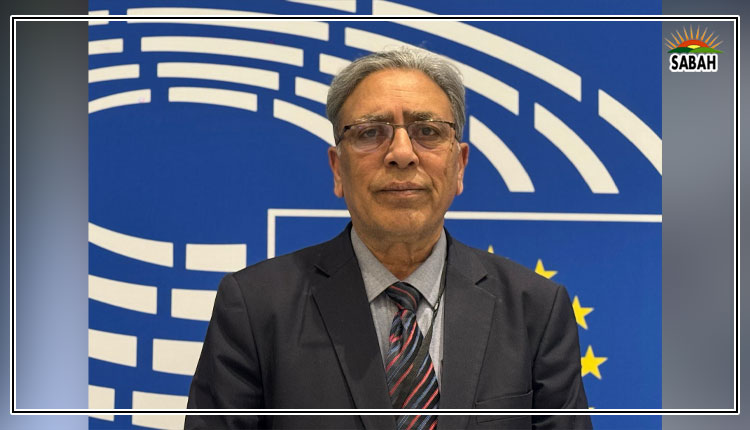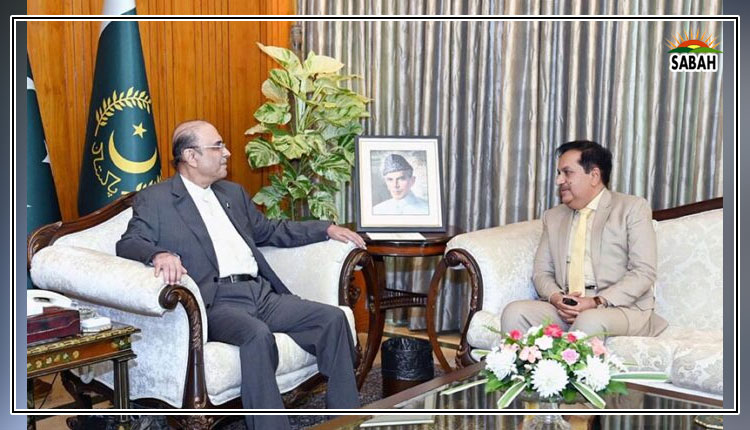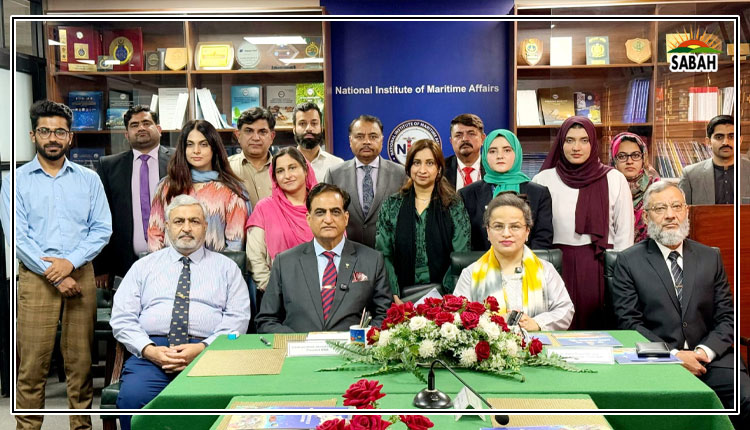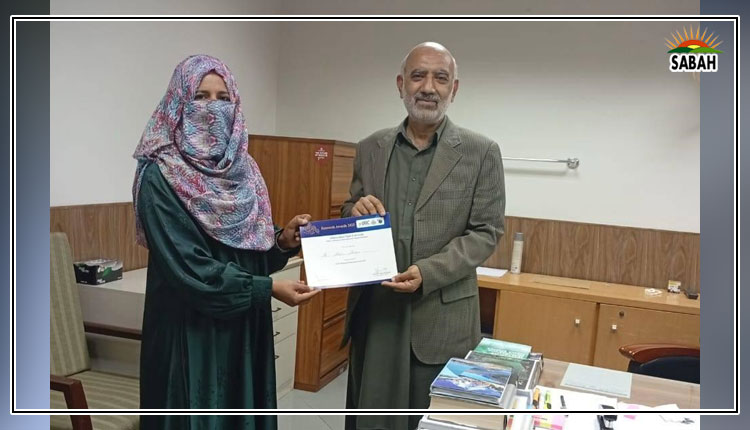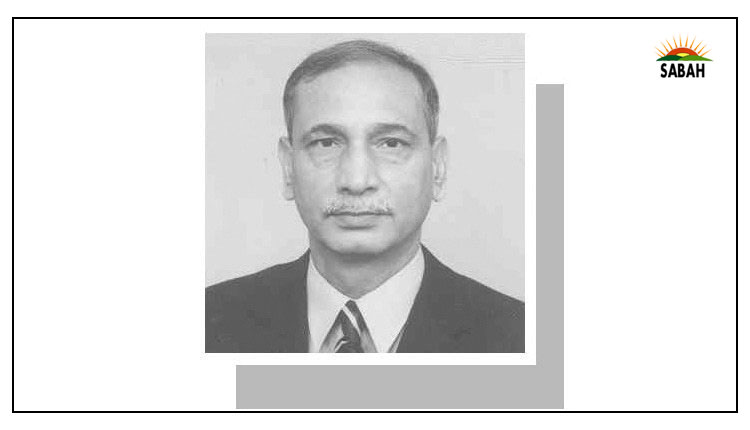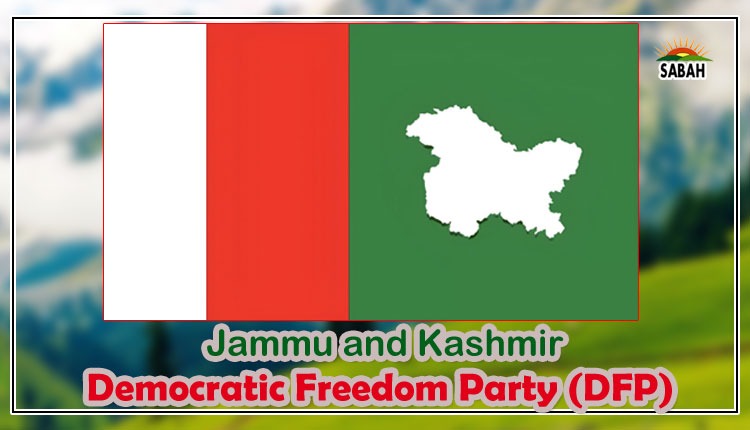What nations remember ….Saad Aalam Angaria
One of the primary goals of any country is to ensure its survivability. Had Pakistan not maintained its robust armed forces, it would have been prey to the Indian assault that occurred in 2019. India used the Balakot terror attack as a pretext to impose a war-like situation upon Pakistan. February marked four years to the response to the Indian incursion by Pakistan named Operation Swift Retort.
As guided by the policy of conventional response quid pro quo plus envisaged in Pakistans security doctrine to inflict damage upon the enemy similar to what the adversary has inflicted with some additions Pakistan successfully thwarted future Indian plans of incursion into Pakistan. The air force not only shot down the Indian jets the remnants are on display in the air force museum and captured Indian pilot Abhinandan but also incurred losses to the Indian side.
The response was not meant to escalate tensions since deterrence was already silently at play. On the contrary, it was aimed to warn India from launching such deliberate attacks in the future and show that Pakistan has a strong defence mechanism to defend its soil. It conveyed a message that if India tried to impose war on Pakistan, we would be prepared to face and defend the country.
Islamabad, cognizant of escalation, made its response limited. Had Pakistan, it is thought, not responded with such promptness, it would have been a benchmark for India to launch similar attacks in the future and set a precedent for such attacks to undermine Pakistan.
Moreover, tensions were at their highest with India since the standoff in 2003. To diffuse the strain, and the fear of full-scale conflict, Pakistan offered an olive branch to India by releasing the Indian pilot as an amiable gesture, despite Indian nefarious designs to instigate instability in Pakistan substantiated by the evidence presented to the UN in a dossier which Pakistan has been highlighting before the international community for decades. India did not reciprocate to Pakistans generous attempt.
The strain between nuclear-armed states in South Asia is too important to be neglected by the international community especially when nuclear weapons are likely to be involved in case of any provocative act. And between the bilateral relations, Kashmir is the flashpoint, where India has not only been violating basic human rights by restricting Kashmiris from their right to live but also revoked their special status in August 2019.
Furthermore, the Indian Brahmos missile incursion is not concealed from the world, which landed in Pakistani territory in March 2022. The Brahmos missile is a dual-use missile developed by Russia and India. It is thought that it was a deliberate act by New Delhi to measure Pakistans response and Indian limits to coercion and threaten Pakistans integrity. India maintained, on the other hand, that the Brahmos missile was an accidental launch.
However, big wigs in Pakistan, aware of the process from development to testing and operations of missiles think that India is making it up to provide a cover for its irresponsible handling of such a critical missile technology which may trigger a nuclear war between the two South Asian countries.
India launched a probe into the incident and took so-called action by dismissing three people. This, nevertheless, does not suffice. What if Pakistan had retaliated with its nuclear-capable missile? What would have happened then? The consequences of mishandling such a critical capability are not beyond anticipation.
Pakistan has repeatedly offered to diffuse tensions, but India always refused or attached conditions to it. Recently, Prime Minister Shehbaz Sharif had also offered negotiations on important bilateral matters with India in a statement saying My message to the Indian leadership and Prime Minister Narendra Modi is that let us sit down on the table and have serious and sincere talks to resolve our burning issues like Kashmir. Pakistan and India are neighbours and have to live with each other.
India did not reciprocate in the same spirit saying …there should be a conducive atmosphere which does not have terror, hostility or violence. That remains our position. From then on, the silence between the two took the lead.
The question arises, notwithstanding such scenarios, how stability and security can be achieved in South Asia. Much has been said about this by numerous experts. The point is to act. It applies on both sides. And a major responsibility falls upon the Indian government which does not reciprocate Pakistans offers to normalize the relations.
It is mainly Indian Hindutva fanaticism that allows PM Modis government to secure power. Pakistans establishment, keeping in view the Indian conduct, expressed its fear of Indian handling of its nuclear assets. National Command Authority (NCA) Adviser Lt-Gen (r) Khalid Kidwai highlighted in 2022 that The custodial controls of Indias large triad of the nuclear arsenal have now fallen firmly in the hands of an extremist fundamentalist leadership. A toxic mix of poisonous ideology and custody of nuclear weapons was posing a serious threat to strategic stability in South Asia. This would not only affect nuclear-armed South Asia but could have consequences for the rest of the world also.
It is conventional wisdom that if communication even in human relationships ceases to exist, it leads to misconceptions about each other, exacerbating the situation and making it difficult for a way towards rapprochement.
Therefore, governments need to initiate negotiations even on a lower level and break the ice. Both should address each others concerns wholeheartedly. Diplomacy is always a panacea to conflicts. Why indulge in conflict when the end of it is negotiation? Why shouldnt it be the only approach?
The memories held by nations dont fade quickly. It is important for states to refrain from creating such harsh memories and learn from the lessons of the past instead of creating further lessons for the future. It is because of these memories that a fervour to refrain from normalization causes talks to halt. Undoubtedly, during negotiations, some elements attempt to derail diplomatic engagements. However, a commitment towards bilateral relations could benefit both sides.
India and Pakistan cannot change their geographies. The only way forward is talks and engagement with each other.
The writer is a member of staff. He tweets @imsaadangaria
Courtesy The News


